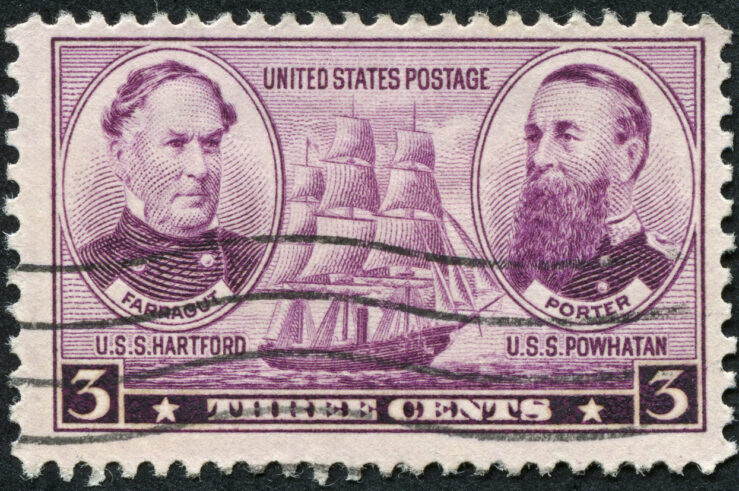Showing archive for: “Rule of Reason”
FTC Biweekly UMC Roundup – Mountain of Puffery Edition
Research still matters, so I recommend video from the Federal Trade Commission’s 15th Annual Microeconomics Conference, if you’ve not already seen it. It’s a valuable event, and it’s part of the FTC’s still important statutory-research mission. It also reminds me that the FTC’s excellent, if somewhat diminished, Bureau of Economics still has no director; Marta ... FTC Biweekly UMC Roundup – Mountain of Puffery Edition
Price-Parity Clauses: The Good, The Bad, and the…Anticompetitive?
Price-parity clauses have, until recently, been little discussed in the academic vertical-price-restraints literature. Their growing importance, however, cannot be ignored, and common misconceptions around their use and implementation need to be addressed. While similar in nature to both resale price maintenance and most-favored-nations clauses, the special vertical relationship between sellers and the platform inherent in ... Price-Parity Clauses: The Good, The Bad, and the…Anticompetitive?
Damn the Economics, Full Speed Ahead!
A White House administration typically announces major new antitrust initiatives in the fall and spring, and this year is no exception. Senior Biden administration officials kicked off the fall season at Fordham Law School (more on that below) by shedding additional light on their plans to expand the accepted scope of antitrust enforcement. Their aggressive ... Damn the Economics, Full Speed Ahead!
The Bitter Fruits of Federal Antitrust ‘Reform’ Legislation
Much ink has been spilled regarding the potential harm to the economy and to the rule of law that could stem from enactment of the primary federal antitrust legislative proposal, the American Innovation and Choice Online Act (AICOA) (see here). AICOA proponents, of course, would beg to differ, emphasizing the purported procompetitive benefits of limiting ... The Bitter Fruits of Federal Antitrust ‘Reform’ Legislation
Pushing the Limits? A Primer on FTC Competition Rulemaking
Since its founding in 1914, the Federal Trade Commission (FTC) has held a unique and multifaceted role in the U.S. administrative state and the economy. It possesses powerful investigative and information-gathering powers, including through compulsory processes; a multi-layered administrative-adjudication process to prosecute “unfair methods of competition (UMC)” (and later, “unfair and deceptive acts and practices ... Pushing the Limits? A Primer on FTC Competition Rulemaking
Why FTC Competition Rulemaking Likely Will Fail
I. Introduction In over a century of existence, the U.S. Federal Trade Commission (FTC) has been a policy leader in developing American thinking about and in enforcing antitrust and consumer protection laws pursuant to several specific statutory mandates. It has also promulgated a substantial number of consumer protection rules, dealing with a wide variety of practices. ... Why FTC Competition Rulemaking Likely Will Fail
AICOA: An Affront to the Rule of Law
The fate of the badly misnamed American Innovation and Choice Online Act, S. 2992 (AICOA), may be decided by the August congressional recess. AICOA’s serious flaws have been ably dissected by numerous commentators (see, for example, here, here, here, and here). Moreover, respected former senior Democratic antitrust enforcers who have advocated more aggressive antitrust enforcement ... AICOA: An Affront to the Rule of Law
Regulating Competition at the FTC
Introduction In November 2021, the Federal Trade Commission (FTC) published a draft strategic plan for fiscal years 2022-2026 that previewed its vision for enforcement without the rule of reason guiding the analysis and without consumer welfare defining the objective. The draft plan dropped a longstanding commitment from the FTC’s previous strategic plans to foster “vigorous ... Regulating Competition at the FTC
Rules Without Reason
In his July Executive Order, President Joe Biden called on the Federal Trade Commission (FTC) to consider making a series of rules under its purported authority to regulate “unfair methods of competition.”[1] Chair Lina Khan has previously voiced her support for doing so.[2] My view is that the Commission has no such rulemaking powers, and ... Rules Without Reason
NEW VOICES: FTC Rulemaking for Noncompetes
On July 9, 2021, President Joe Biden issued an executive order asking the Federal Trade Commission (FTC) to “curtail the unfair use of noncompete clauses and other clauses or agreements that may unfairly limit worker mobility.” This executive order raises two questions. First, does the FTC have the authority to issue such a rule? And ... NEW VOICES: FTC Rulemaking for Noncompetes
The FTC Abandons the Free Market
In December 2021, the Federal Trade Commission (FTC) released its statement of regulatory priorities for 2022, which describes its intention to expand the agency’s rulemaking activities to target “unfair methods of competition” (UMC) under Section 5 of the Federal Trade Commission Act (FTC Act), in addition to (and in some cases, presumably in place of) ... The FTC Abandons the Free Market
Can the FTC Use Rulemaking to Change Antitrust Law?
FTC Rulemaking Power In 2021, President Joe Biden appointed a prolific young scholar, Lina Khan, to chair the Federal Trade Commission (FTC). Khan strongly dislikes almost every element of antitrust law. She has stated her intention to use notice and comment rulemaking to change antitrust law in many ways. She was unable to begin this process ... Can the FTC Use Rulemaking to Change Antitrust Law?










